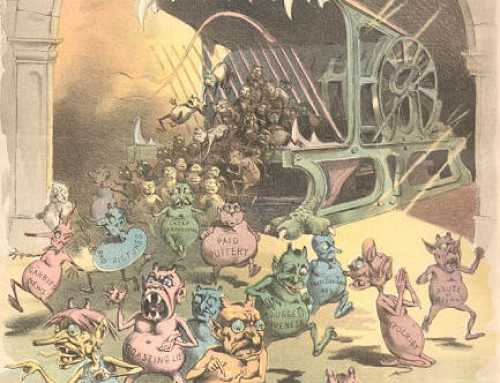 In its second 5-4 decision of the day, the Supreme Court ruled against cultural diversity.
In its second 5-4 decision of the day, the Supreme Court ruled against cultural diversity.
A lower court had ruled against two heartbroken adoptive South Carolina parents, who were ordered to return their adopted girl to her biological father, a Native American, despite the “loving family environment” they provided. Overturning the reasoning behind the decision, the Roberts Court’s majority decided that the 1978 Indian Child Welfare Act does not automatically give the biological father the right to take the child back. The couple from South Carolina can go back to the lower court to determine custody now on the basis of the “best interests of the child” doctrine. (Alito wrote the opinion with Roberts, Kennedy, Thomas and Breyer, though the latter two wrote concurring opinions.)
Who said the Supreme Court believed in diversity, anyway? Yesterday’s affirmative action decision already showed that.
Professor Ruth O’Brien, who earned her Ph.D. in political science at UCLA, joined the Graduate Center’s doctoral faculty in 1997 and, in 2004, founded the “Writing Politics” specialization in political science. She also serves as an adjunct affiliated scholar with the Center for American Progress. In her research and books, she focuses on American politics, law, political theory without national borders, globalism, and American/global dichotomy. She edits the award-winning “Public Square” series for Princeton University Press, showcasing public intellectuals such as Jill Lepore, Jeff Madrick, Anne Norton, Martha Nussbaum, and Joan Scott. O’Brien is also launching “Heretical Thought,” an Oxford University Press political-theory series that is global in outlook. Her latest book, Out of Many One: Obama and the Third American Political Tradition (2013), with a foreword by journalist Thomas Byrnes Edsall, distinguished professor at Columbia’s School of Journalism, was honored with a 2013 “Author Meets Critic” American Political Science Association convention session. She also wrote Bodies in Revolt: Gender, Disability, and a Workplace Ethic of Care (2005), Crippled Justice: The History of Modern Disability Policy in the Workplace (2001), which received an honorable mention from Gustavus Meyers Center for the Study of Human Rights and Bigotry (“Meyers Center”), and Workers’ Paradox: The Republican Origins of the New Deal Labor Policy, 1886–1935 (1998). “Writing Politics” emanated from two books she contributed to and edited: Telling Stories out of Court: Narratives about Women and Workplace Discrimination (2008) and Voices from the Edge: Narratives about the Americans with Disabilities Act (2004), which earned another honorable mention from the Meyers Center. O’Brien’s controversial blog led Rush Limbaugh to dub her a “professorette.”
 In its second 5-4 decision of the day, the Supreme Court ruled against cultural diversity.
In its second 5-4 decision of the day, the Supreme Court ruled against cultural diversity.





